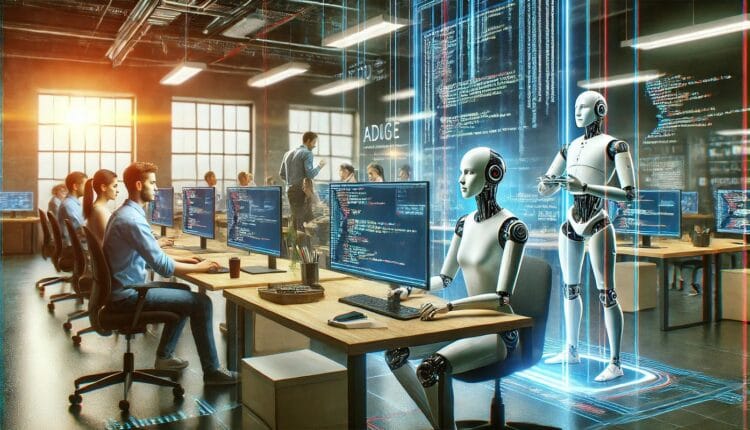Surviving the AI Revolution: Building an Intellect-Driven Economy for the Future

As artificial intelligence continues its rapid integration into every facet of modern life—from medicine and finance to education and journalism—the looming fear is undeniable: if machines can do our jobs, what happens to our livelihoods? The truth is, this is not the first time humanity has faced this dilemma. From the industrial age to the digital age, technology has always sparked anxiety, resistance, and ultimately, adaptation. Today, as we stand at the edge of a post-labor economy, the challenge isn’t just about survival—it’s about redefining value in an age ruled by algorithms.
The Historical Echoes of Tech Anxiety
Technological revolutions often feel unprecedented, but the fear they evoke is deeply familiar. The Luddites of 19th-century Britain protested the mechanization of textile production, seeing it as a direct threat to their artisanal livelihoods. Fast forward to the early 2000s, and Amazon warehouse employees expressed similar concerns when robotic automation entered their workspace. The wheel, the loom, the factory machine—all were once perceived as job-stealing threats.
History teaches us one consistent lesson: technological progress is unstoppable. Resistance may be emotionally satisfying in the short term, but it rarely succeeds in the long run. The key lies in adapting to the tide, not swimming against it.
Automation and the Decline of Labor as Currency
What makes today’s AI disruption different is its sheer scope. Artificial intelligence is not just replacing manual or repetitive tasks—it’s encroaching on intellectual and creative domains once thought safe from automation. Writers, teachers, financial analysts, and even engineers now find themselves sharing space with intelligent agents that can learn, think, and create.
This shift fundamentally challenges the core mechanism of our economies: labor. For centuries, economies have been labor-driven. Whether through physical effort or intellectual contribution, labor has been the main source of personal and societal wealth. But if labor is no longer exclusive to humans, what replaces it as a unit of economic value?
Why Universal Basic Income (UBI) Isn’t Enough

One proposed solution to the labor crisis is Universal Basic Income (UBI), a system where individuals receive a fixed income regardless of employment status. While appealing in theory, UBI has practical and philosophical shortcomings. It overlooks the intrinsic human need for purpose, motivation, and hierarchy—elements that drive innovation and progress.
Moreover, UBI has only seen limited success in small-scale pilot programs and lacks the scalability and nuance required for a global economic shift. Simply handing out money without addressing how value is created and distributed fails to solve the deeper issue: how to keep humans meaningfully engaged and fairly compensated in an AI-dominated world.
Introducing the Intellect Economy
Instead of sidelining labor altogether, we should reframe our understanding of value by focusing on intellect as the new cornerstone of economic contribution. Just as machines replicated human physical labor in the industrial age, AI now replicates intellectual and creative processes. Therefore, the intellect that fuels these systems deserves recognition and compensation.
This idea forms the basis of the Intellect Economy—a model where human thought, creativity, and knowledge are not only preserved but monetized. In this system, input matters as much, if not more, than output. The individuals who contribute to AI development, directly or indirectly, should benefit from the systems that their data, ideas, and creativity help build.
“Read Also: تحليل شامل للعملات الرقمية“
Universal Baseline Intellect: A Smarter Alternative to UBI
To support the Intellect Economy, we propose a system called Universal Baseline Intellect (UBI 2.0). Unlike traditional UBI, this model is rooted in merit and participation. It rewards individuals based on their intellectual contributions—whether through data, content, feedback, or creative input.
This model would shift the focus from passive income to active intellectual engagement. It recognizes that while AI can mimic human output, it still depends heavily on human input for training, refinement, and direction. Therefore, compensating people for their contributions ensures a more equitable and sustainable digital future.
“Read Also: أفضل 5 عملات رقمية“
The Power of Decentralization and Ownership
To ensure that human intellect remains protected and profitable, decentralization becomes crucial. In a decentralized digital economy, creators maintain ownership of their intellectual property, with smart contracts and blockchain technology offering transparent, enforceable mechanisms for compensation.
This model supports a world where individuals control their personal AI agents—digital extensions that learn from them and work on their behalf. These agents could engage in tasks, make recommendations, or create content, all while generating revenue for their human counterparts. Such a system keeps the individual at the center of AI development, rather than allowing tech giants to monopolize value creation.
“Read Also: توقعات روبرت كيوساكي بانهيار البيتكوين“
From Attention-Based to Intention-Driven Systems
The current internet economy is largely based on attention—clicks, views, and time spent. But the next evolution will be intention-driven, where personalized AI agents understand and act upon users’ goals and preferences. This shift demands a new model of value exchange, one that emphasizes meaningful outcomes over passive consumption.
By aligning systems with individual intentions and ensuring that humans retain control over their digital identities and contributions, we can foster a healthier, more purposeful economy—one where AI amplifies human potential instead of replacing it.
“Read Also: تحليل سوق العمل الأمريكي 2025“
Conclusion: A Hopeful Future Beyond Fear
The AI revolution doesn’t have to be a death sentence for human labor or creativity. If we act wisely, it can mark the birth of a new economic paradigm that places intellect, fairness, and individuality at its core. By embracing the Intellect Economy, supporting Universal Baseline Intellect, and investing in decentralized ownership models, we can ensure that AI serves the many—not the few.
This future won’t arrive on its own. It requires collective effort, ethical foresight, and proactive policy. But the opportunity is here: to turn today’s fear into tomorrow’s freedom, and to build a world where technology liberates rather than dominates.
